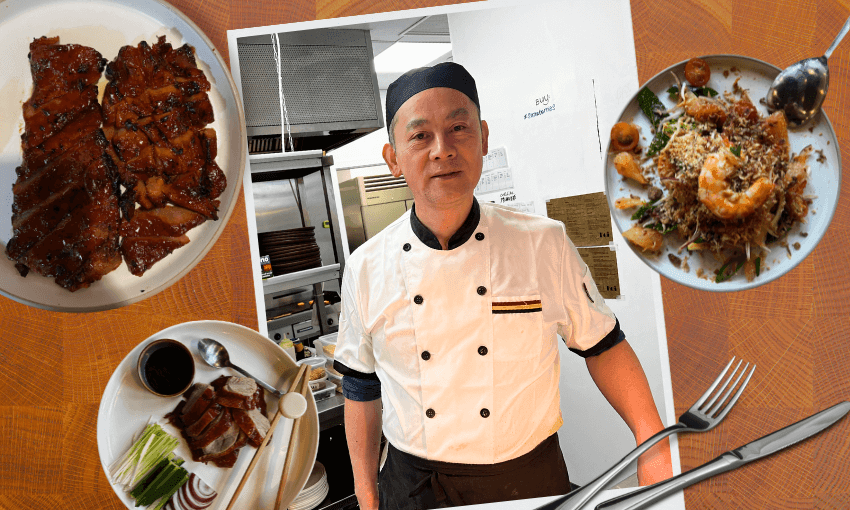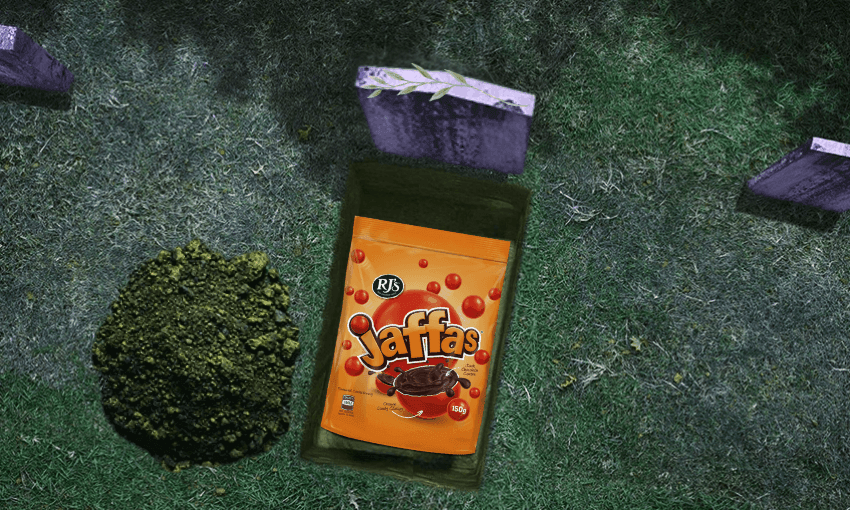For owner and chef Michael Chan, the answer is Hei – the restaurant he always dreamed of opening.
One of the many problems with modern TV cooking shows is the obsession with “elevating” food from non-Western cultures. You’ll recognise the kind of moment I mean: a contestant on Masterchef, My Kitchen Rules, or some other food-adjacent programme will announce they are cooking something from their home country’s repertoire of dishes. The middling TV-man-chef will confidently announce he’s not worried about flavour, but fears the dish may end up looking a bit too “rustic”. He makes the classic error of thinking a lack of physical height in a dish is the result of a lack of skill.
I do get why. So much of the world has been influenced by the French principles of cookery, and it is easy to look past a dish that does not conform to some of these ideals: height, texture, colour, placement, contrast. Of course, I love a bit of clever plating. When it’s done well, it’s a visual treat and helps you navigate the flavours. But do we really want our nasi goreng served in a tower, with sphericated shrimp, spring onion espuma, chilli crisp floss and “textures of lotus root”? Actually, maybe that does sound quite fun? But probably not.
When I first heard of Hei, the new “refined” Chinese restaurant on Cuba Street, I had my worries. In a city bursting with exceptional South East Asian restaurants, who was this supposed elevation really appealing to? Then I realised it was being opened by Michael Chan and the whole family from legendary Courtenay Place eatery KC Cafe. So, I parked my cynicism, went for dinner and had a chat with Michael about opening that difficult second restaurant.
Michael first thought of opening Hei during the 2020 Covid lockdown. Like all of us, he had time to lean into that vague existential dread of what he was doing and where he wanted his life to go next. The result of that panic is Hei: his dream restaurant. “I always loved cooking, but it was a bit hard at KC as the aim for that was to just make a living for the family. I haven’t really had the chance to be creative with my dishes there,” he says.
Too many of the things he was dreaming up simply “weren’t really suited for KC.” He ended up with dozens of notebooks filled with more complex and playful dishes, ones that would simply clog the well-oiled machine at KC Cafe.
Opening a more formal, docket-based restaurant has been no easy task. Michael had zero experience in front-of-house service; at KC the process is to “yell out the orders” and hope for the best. And like so many in hospitality, he’s had to stare down waves of self-doubt. “It’s taken this long to build up the courage to do it,” he says. “But I wanted to model for my kids that it’s OK to fail. I mean, it’s not great. But you learn and adapt.”
Michael’s speciality has always been Chinese cookery, especially from the Guangdong region. When designing the new venture, he wanted to try to change the Kiwi mentality. “When people think of Chinese food, I think most people think of cheap takeaways. There is so much more to the cuisine,” he says. Take, for example, the pomelo and prawn salad (fun pub fact: pomelo is officially the largest citrus fruit). It is a dizzying combination of ingredients that is at once chaotic yet purposeful: tart green apple and bitter pomelo sit among red onion and fistfuls of vibrant, fresh Asian herbs: Thai basil, coriander, lemongrass, kaffir lime. There is heat from sambal and texture from peanuts and thinly sliced red onion. It is the epitome of elegance yet demonstrably flavour-led. It is exactly what Hei is designed to be.
Inspiration for his dishes is drawn from many places, from videos he saw online to meals he has eaten overseas. He works backwards from what he has seen and tasted and reverse engineers the dishes in his own style. Like the golden pork chop and rice on the lunch menu, which is a classic in Hong Kong cafes, or the fried prawn balls his son became obsessed with in Singapore. Michael tried many times to recreate them, and found they were “delicious with chilli oil velouté.” Char siu, too, has been developed further than is traditional. Instead of its conventional luminous pink, Micahel’s sits deep and earthy with black flecks where the flames have licked at its extremities. Rather than using the customary pork butt, he opted for the much leaner loin. A move that in lesser skilled hands would have proven dry, but here it is unctuous and luxurious with its citrus and honey glaze singing sweetly.
Another thing that sets Hei apart is the drinks list: a showcase of biodynamic and organic wines from producers like Bryterlater in North Canterbury and Decibel Wines from Hawke’s Bay. This place is certainly not a BYO. The cocktail list is just as exciting. It was made in collaboration with Dee’s Place, the bar downstairs that has a very strong claim to being the best bar anywhere in the city (if you haven’t been before, go there right now and ask for a whiskey and freshly juiced green apple). The drinks incorporate many of the ingredients Michael uses in his cooking – for example, the Smacked Eastside has sesame oil and coriander in it. It is this level of care that speaks to Michael’s passion for delivering something unexpected in the Chinese restaurant space.
All of this is not to say that any of this elevation or refinement makes it inherently better than any other Chinese restaurant in town. What makes it so compelling is that this restaurant is truly a passion project. One where every single last decision has been painstakingly made by someone who understands food and hospitality. The velouté under the prawn balls is not a gimmick; it is there because Michael is absolutely certain that is where it should be. The cut selection on the various meat dishes has been made because he knows it will work and become something special. Hei means happiness in Cantonese, and after eating there and chatting with Michael, I cannot think of a more appropriately named restaurant anywhere in the world.








